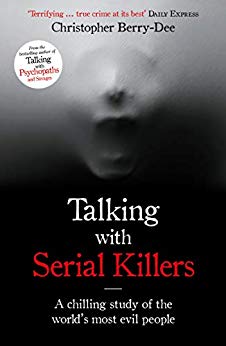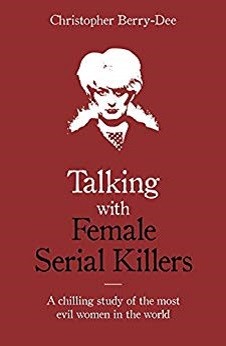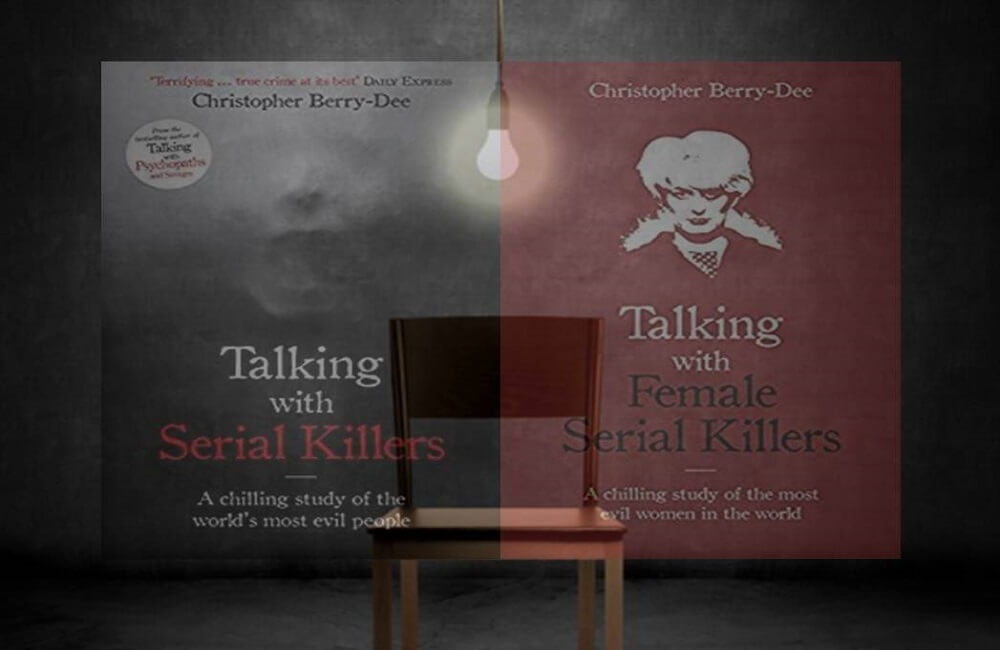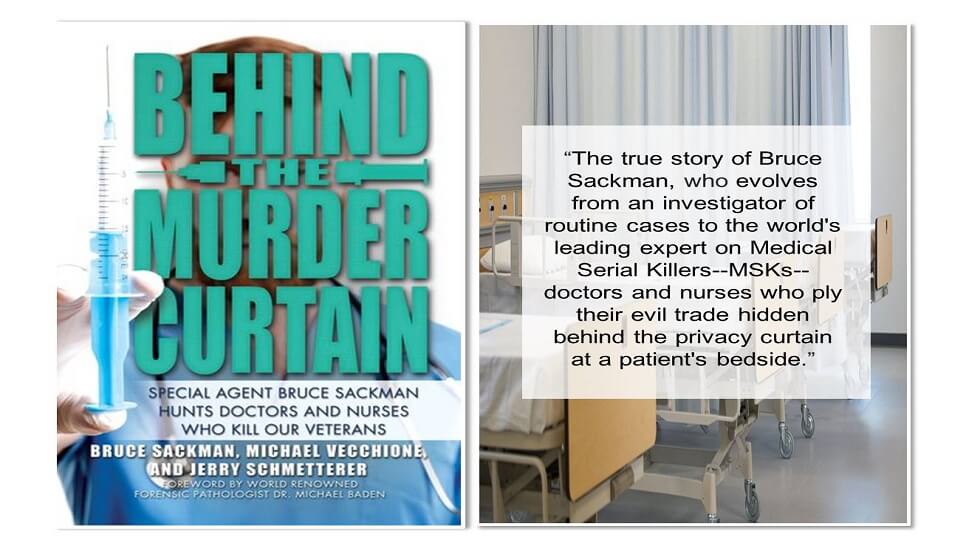The demise of the local bookshop and the rise of the internet bookseller have focussed attention on the front cover of new books with the title, author, and cover illustration now determining the success or failure of the book. W.H. Smith shops would have you believe that every book worth reading has been written by a TV celebrity. Gone are the booksellers who had read every book and who were able to deliver an informed opinion on each of them. Personally, I mourn their loss.
Christopher Berry-Dee is a knowledgeable, skilled and experienced criminologist and author.
He has devoted his life to undertaking research into killers, latterly focussing on serial killers. In a career lasting over thirty years he has published more than forty books, many of which have been translated into other languages. I have enjoyed all of these books and learned a great deal from them. The name of Christopher Berry-Dee justifies his books becoming bestsellers.


Selling these books in public booksellers precludes printing photographs of the victims of the subjects of these books on the covers, so suitably discreet drawings illustrate the covers and allow potential purchasers use their imaginations.
The titles, of “Talking with Serial Killers” and “Talking with Female Serial Killers” have been cleverly crafted, presumably by the book publishers. Last year I sat down in my local public library surrounded by several copies of my book, “London Underground Serial Killer” and was surprised to be instantly surrounded by a dozen young women all wanting to discuss the books. Several universities have cashed in on the fascination felt by large numbers of people in serial killers and serial killing, by establishing courses on the subject that are more salacious than academic. But including the word ‘Talking’ these titles is designed to indicate an intimacy with the creatures that nobody knows, and nobody has ever spoken to, and certainly not spoken to about their crimes. The title promises the disclosure of previously unknown secrets.
Standing in the station bookshop with only a few minutes until the train departs, the title, the name of the author and the front cover illustration will sell the book. It is only when you get on the train and sit down to read the book that problems start to arise.
The first book, “Talking with Serial Killers” shows on the second page that it was first published in 2003. In serial murder, that is an age ago, possibly two. A great deal has changed in the last fifteen years in serial killing and I advise my students to ignore sources more than ten years old. Most people purchasing the book would expect the material to be considerably more current than it is.
Mr Berry-Dee starts the first of these books with an Acknowledgements page in which he quotes two of the world’s leading experts on serial killing, Professor Elliot Leyton and F.B.I. Special Agent Robert Ressler, who agree that, “Unless you are a police officer or psychiatrist, both of whom have unique access to the penal system, it is almost impossible to gain access to interview a single serial murderer let alone two such creatures”.
As a Scotland Yard detective who has spoken to seven serial killers before, during and after their killing sprees I can easily understand the problems that
Unfortunately for him, the police, the courts and the prison authorities keep serial killers busy for a few years with arrest, remand, committal, trial, conviction and imprisonment and then like them to settle down in prison to serve their terms before allowing them to talk to researchers. By this time cognitive dissonance has occurred and they have justified their actions to themselves, if not to anybody else.

I recall an episode of C.S.I. in which Dr Raymond Langstone tried to talk to Nate Haskell, a convicted serial killer in prison and the mind games that followed. Of course, Mr Berry-Dee has no authority over the serial killers and nothing to offer them in the way that a police detective or court-appointed psychologist pre-trial would have, and so has to put up with their shenanigans and their lies.
By the time that Mr Berry-Dee has secured access to the serial killers, the police investigation has been completed, the trial has been conducted, the facts of the case have largely been established. Having read the title of the books, I sat down expecting to read the conversations that Mr Berry-Dee had had with the serial killers. I wanted to hear which facts they accepted, which facts they rejected, their family history and the pressures that made them act in the way that they did, so that I could understand the person and what made them the way that they were. Unfortunately I was to be disappointed.
These two books are very well-researched volumes detailing the activities of thirty male and twenty female serial killers. Students of criminology and serial killing will find them both well-written and will learn a great deal from them.
The value of books like these is two-fold. They contain proven facts established by detectives at the conclusion of the investigation, when all available sources of evidence have been thoroughly investigated and tested. Secondly, psychologists can identify the falsehoods and prevarications told by the serial killers and thereby draw inferences that allow them to understand the killer and his or her motives.
These books contain vast tracts of data about the lives, personalities and activities of the serial killers, but the sources of the data are not clear and it is not clear the degree of independent verification of the facts, so that their lies may be identified. Some of the statements of the serial killers have been printed in italics, but in most cases sources have not been identified. Only when all the statements of serial killers are clearly identified and their veracity discussed may the thoughts and motivations of those making them be understood and the true value of the gold dust contained in the words in the books accurately evaluated. What really frustrated me was that I felt certain that the information that I sought was known to the author, but had not been clarified.
These are still great books, but they are just not as special as they could be if the sources had been fully listed, so that the motives and personalities of the serial killers who fascinate us all may be better understood, which is surely the purpose of any book on serial killing and serial killers. With a little effort Mr Berry-Dee could easily have re-written all or part of his first book in the light of recent developments in the field of serial killing.
Both “Talking with Serial Killers” (2018 Edition) and “Talking with Female Serial Killers” by Christopher Berry-Dee are published by John Blake Publishing.
About the Author: Geoff Barton is a former Police detective and current author who has written a number of true crime books, notably two on the case of The London Underground Serial Killer, Kieran Patrick Kelly.



